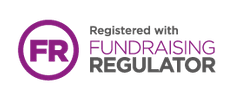Masking - Ellie's Experience
Autistic people may have different ways of communicating and behaving – and these differences can make them stand out. To avoid this, some individuals may knowingly or unknowingly supress parts of their identity through masking.
Many autistic people still face social stigma, and hiding their differences can be a coping strategy to avoid negative judgement and social exclusion.
It can be an uncomfortable experience and have harmful outcomes in the long run, including negative self-perception and mental health issues such as anxiety.
Ellie is always masking, which has left her feeling drained and tired – it requires a substantial amount of time and energy to observe others’ behaviours and then replicate the same actions. It can be highly depleting and lead to exhaustion.
As a result, she has been working on herself to become less masked around people in recent years. However, the process of unmasking comes with its own challenges.
She said: “I found it’s harder to unmask around people that have already known you with a mask. Whereas if you’re meeting someone new, it’s much easier.”
After spending so much of your life masking, the idea of opening up and showing your real self can be daunting – especially to those who have known you for so long under a different guise.
She continued: “They almost have this expectation, they think, oh why are you now acting differently? And then you always feel like maybe you’re just putting on an act, maybe you’re just pretending…It’s not true. You’ve just never been yourself, truly.”
The fear of social exclusion can drive the act of masking and push people to behave in a way that meets societal expectations, which may be heightened in certain settings and groups. In Ellie’s case, this is more prominent amongst people her own age.
She added: “When I am with people my own age, even before I tell them I’m autistic, I always have this feeling, when they meet me, that I’m automatically excluded from things.”
“I feel like they have this sensation when they meet you that something’s not quite right, possibly because we’re masking. We’re not being ourselves and I feel that neurotypical people can almost, they get that sense, that the way you’re communicating isn’t quite like them and I feel like that automatically excludes you from things.”
Even when masking, there is the underlying fear of being exposed as different – that people can tell when you aren’t being authentic, and this only adds to the existing pressure that comes with conforming to neurotypical norms.
More measures and training are needed to promote autism understanding and acceptance in different settings so that individuals can feel comfortable in who they are and how they present.
Nurturing a truly inclusive environment which welcomes neurodiverse traits can help to reduce the stigma around differences and empower autistic people to express themselves.






